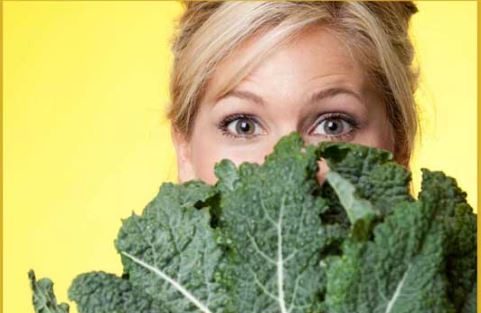Amazing Tips Look to Fruits and Vegetables for Good Eye Health?
Improving Your Eye Health
IntroductionEyes are an essential and delicate part of our body that allows us to perceive the world around us. Good vision is crucial for daily activities and overall well-being. While genetics play a significant role in eye health, a well-balanced diet can also contribute to maintaining and improving our vision. Fruits and vegetables are rich sources of essential nutrients, vitamins, and minerals that are beneficial for eye health. In this article, we will explore the best fruits and vegetables for eyes, discussing their unique properties and how they can help promote better vision.
Carrots
For a good reason, carrots are frequently linked to healthy eye health. They contain a lot of beta-carotene, which is a vitamin A precursor. Vitamin A is essential for preserving eye health and enhancing night vision. Regular carrot consumption can lower the risk of cataract and age-related macular degeneration (AMD).
Spinach
Spinach is a leafy green vegetable packed with lutein and zeaxanthin, two powerful antioxidants that play a crucial role in eye health. These compounds can help protect the eyes from harmful high-energy light waves like ultraviolet rays, which can contribute to eye diseases over time.
Sweet Potatoes
Similar to carrots, sweet potatoes are loaded with beta-carotene, which the body converts into vitamin A. Incorporating sweet potatoes into your diet can help prevent dry eyes, promote good vision, and protect the cornea.
Blueberries
Blueberries are rich in anthocyanins, potent antioxidants that help combat oxidative stress in the eyes. Oxidative stress can cause glaucoma, macular degeneration, cataracts, and other eye conditions. Your chance of developing these illnesses may be lowered by include blueberries in your diet.
Oranges
Oranges are famous for their high vitamin C content, which is essential for maintaining healthy blood vessels in the eyes. Vitamin C also plays a role in reducing the risk of cataracts and slowing down the progression of AMD.
Kale
Kale is another leafy green vegetable packed with eye-healthy nutrients, including lutein and zeaxanthin. These antioxidants protect the eyes from harmful light and reduce the risk of eye diseases.
Papaya
Papayas are an excellent source of vitamin C, beta-carotene, and zeaxanthin, making them a triple-threat for eye health. Consuming papayas regularly can help reduce the risk of vision loss and maintain healthy eyes.
Broccoli
Broccoli is a nutritional powerhouse containing vitamin C, beta-carotene, and lutein. These nutrients work together to protect the eyes from harmful light and maintain clear vision.
Bell Peppers
Bell peppers, especially the brightly colored ones, are rich in vitamin C and beta-carotene. Regular consumption of bell peppers can help protect the eyes from free radicals and support overall eye health.
Apricots
Apricots are a delicious fruit packed with beta-carotene, vitamin C, and vitamin E. These nutrients not only promote healthy eyes but also protect against age-related eye conditions.
Mangoes
Mangoes are rich in vitamin A and beta-carotene, both of which are essential for maintaining good eyesight. Regularly eating mangoes can help prevent dry eyes and night blindness.
Tomatoes
Tomatoes are a great source of lycopene, an antioxidant that protects the eyes from sun damage and reduces the risk of developing cataracts.
Avocado
Avocado is a nutrient-dense fruit containing lutein, zeaxanthin, and vitamin E, which are essential for maintaining eye health and preventing age-related eye diseases.
Brussels Sprouts
Brussels sprouts contain high levels of vitamin C and beta-carotene, contributing to better eye health and preventing oxidative damage to the eyes.
Conclusion
Incorporating a variety of fruits and vegetables into your daily diet can significantly contribute to improving and maintaining good eye health. The vitamins, minerals, and antioxidants found in these colorful foods work synergistic ally to protect the eyes from harmful light, reduce the risk of eye diseases, and promote clear vision. Remember to consult with a healthcare professional or a registered dietitian to tailor a diet that suits your individual eye health needs. By nourishing your eyes with nature's finest, you can enjoy better vision and a lifetime of healthy eyesight.


















We offer guest posts. Thank you so much for visiting my blog.